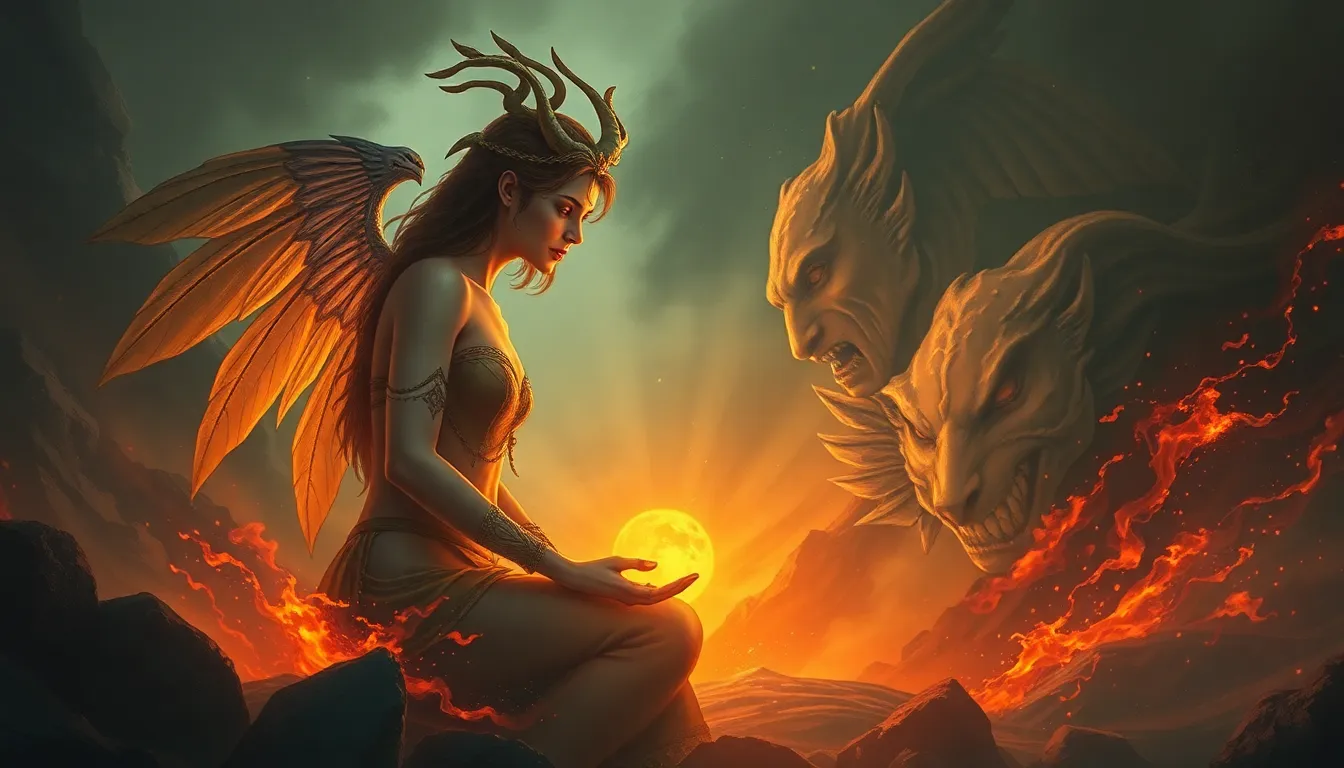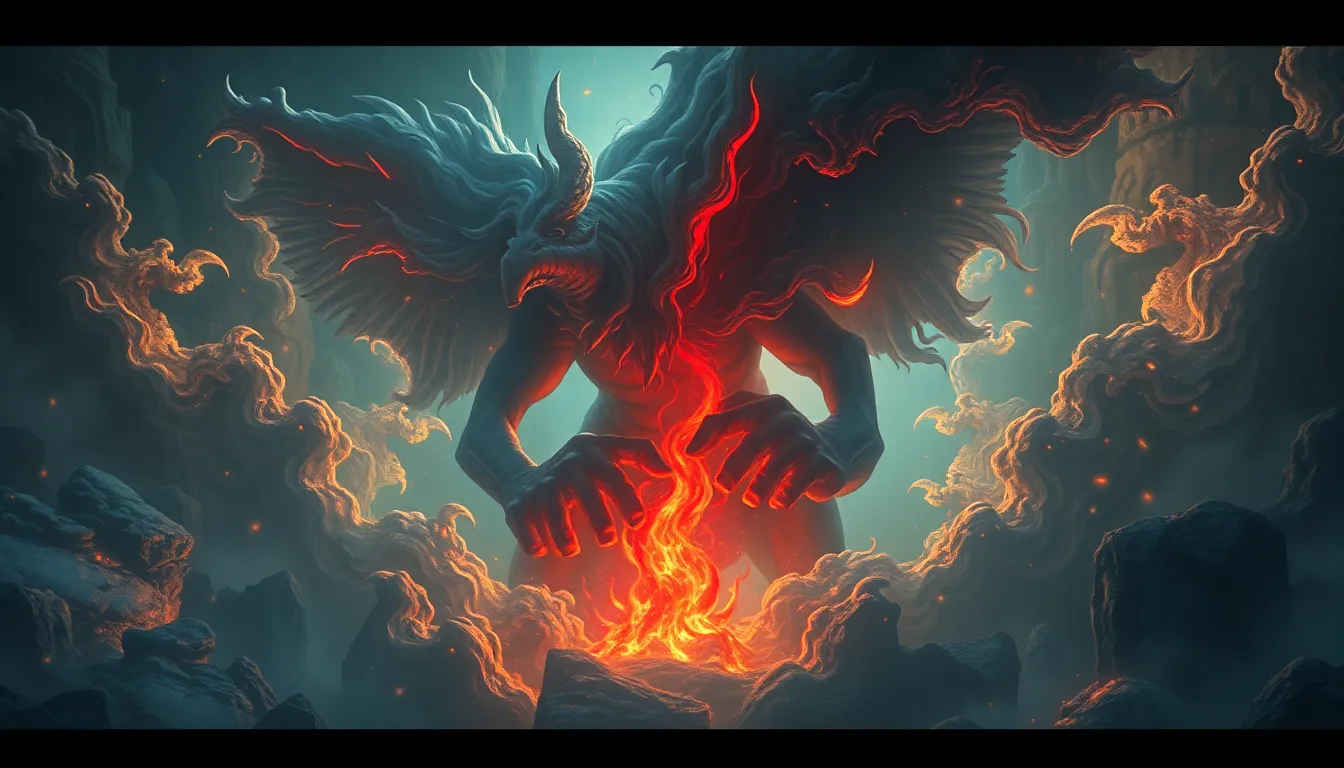Love’s Trials: The Most Challenging Relationships in Mythology
I. Introduction
Mythology has long served as a mirror to human experience, capturing the multifaceted nature of love through various narratives. Love, in its many forms, acts as a driving force in mythological tales, often leading characters through trials that test their devotion, resilience, and humanity. The importance of challenging relationships in these stories highlights the complexities and struggles inherent in love, reflecting the emotional journeys that resonate with audiences across time and cultures. This article explores some of the most challenging relationships in mythology, examining the trials faced by notable couples and the lessons that can be gleaned from their experiences.
II. The Nature of Love in Mythology
In mythology, love is not a one-dimensional emotion; it encompasses various types that include:
- Romantic love: Often depicted as passionate and intense, yet fraught with obstacles.
- Familial love: Highlighting bonds between family members, often showcasing loyalty and sacrifice.
- Platonic love: Representing deep friendships that can endure trials and tribulations.
Destiny and fate frequently play pivotal roles in these love stories, as characters navigate their paths, often facing insurmountable odds. Love is portrayed as a source of both joy and suffering, emphasizing that even the most profound connections can lead to heartache and trials.
III. Orpheus and Eurydice: The Power of Music and Loss
The tragic love story of Orpheus and Eurydice is one of the most poignant in mythology. Orpheus, a gifted musician, fell deeply in love with Eurydice, who tragically died shortly after their wedding. Driven by grief, Orpheus ventured into the Underworld, determined to bring her back.
In the Underworld, Orpheus faced numerous trials, including persuading Hades, the god of the dead, to release Eurydice. His music moved the hearts of the dead, but he was given one condition: he must not look back at her until they reached the surface. In a moment of doubt, Orpheus turned to look, causing Eurydice to vanish forever.
This tale underscores themes of trust and the devastating consequences of doubt, illustrating how love can lead to both extraordinary courage and profound loss.
IV. Pygmalion and Galatea: The Dangers of Idealization
Pygmalion, a sculptor, became enamored with a statue he created, named Galatea. His obsession with the idealized form led him to pray for her to come to life. The goddess Aphrodite, moved by his devotion, granted his wish, bringing Galatea to life.
The challenges of their relationship revolved around the dangers of idealization. Pygmalion’s love for Galatea was rooted in his perception of perfection, which posed a threat to their bond. The story highlights important messages about:
- The risks of placing unrealistic expectations on a partner.
- The need for acceptance of imperfections in love.
V. Cupid and Psyche: The Journey of Trust and Transformation
The relationship between Cupid, the god of love, and Psyche, a mortal woman, is fraught with trials that test their love. Psyche’s beauty incited jealousy in Venus, Cupid’s mother, leading her to set impossible tasks for Psyche to prove her worth.
Psyche’s journey involved overcoming formidable challenges, including sorting a vast quantity of seeds and retrieving a box of beauty from the Underworld. Through perseverance and the help of divine beings, she succeeded, ultimately earning Cupid’s trust and love.
The themes of trust, betrayal, and self-discovery are central to their story, illustrating how love can transform individuals and lead to personal growth.
VI. Hera and Zeus: The Trials of Love and Power
The marriage of Hera and Zeus embodies a complex dynamic of love and power. As the king of the gods, Zeus’s infidelity led to numerous trials in their relationship. Hera’s jealousy and vengefulness often resulted in conflict, yet their relationship also experienced moments of reconciliation and understanding.
This mythological narrative showcases the interplay of love and authority, revealing how power dynamics can complicate even the deepest bonds. Hera’s strength and resilience in the face of Zeus’s betrayals highlight the complexities of love within a relationship marked by authority and hierarchy.
VII. Tristan and Isolde: The Consequences of Forbidden Love
The tragic romance of Tristan and Isolde is a tale of ill-fated love that endures despite the obstacles they face. Bound by loyalty to King Mark, Isolde’s betrothed, Tristan and Isolde fall deeply in love after consuming a love potion, leading to a passionate affair that ultimately brings about their downfall.
The story emphasizes the impact of love potions and fate, illustrating how love can defy societal norms and expectations. Themes of loyalty, sacrifice, and tragedy permeate their story, showcasing the lengths to which lovers will go for one another, even at great personal cost.
VIII. Hades and Persephone: Love Beyond the Underworld
The myth of Hades and Persephone explores a unique relationship marked by abduction and compromise. Hades, enamored with the beautiful Persephone, abducted her to the Underworld, leading to her mother Demeter’s grief and the subsequent barrenness of the earth.
The resolution of their story lies in Persephone’s dual existence, splitting her time between the Underworld and the surface world, symbolizing the changing seasons. This cycle serves as a metaphor for their relationship, embodying themes of compromise, growth, and the duality of life and death.
IX. The Role of Gods and Fate in Mythological Relationships
Divine intervention plays a significant role in shaping mortal love stories, as gods often influence the fates of their human counterparts. The concept of predestined love introduces a layer of complexity to relationships, as characters grapple with their destinies and the trials imposed by the divine.
Examples of gods influencing human relationships include:
- Aphrodite’s manipulation of love and desire.
- Zeus’s interventions in mortal affairs, often leading to chaos.
These divine forces serve to highlight the unpredictability of love and the challenges that arise when mortals are at the mercy of greater powers.
X. Conclusion
The lessons learned from the challenging relationships in mythology reveal the timeless nature of love’s trials. These narratives remind us that love is often intertwined with struggle, sacrifice, and transformation. In understanding these ancient stories, we gain insights into the complexities of modern love, recognizing that even the most difficult relationships can lead to profound growth and understanding.
Ultimately, the exploration of love in mythology serves as a reflection of the human experience, emphasizing that love, in all its forms, is a powerful force that shapes our lives and destinies.



